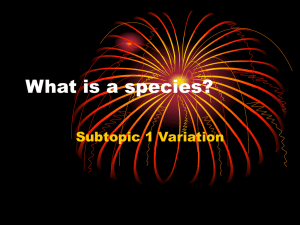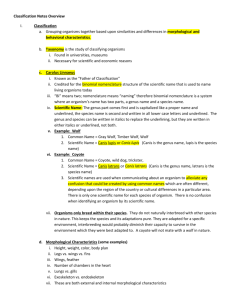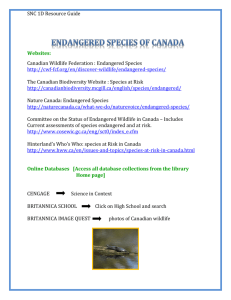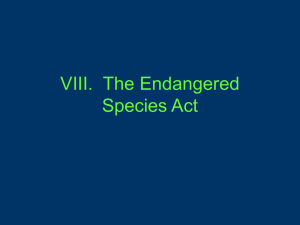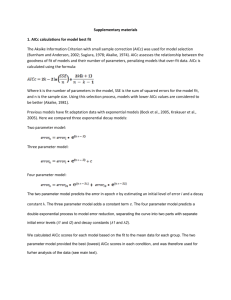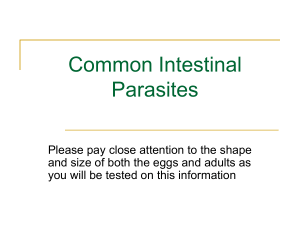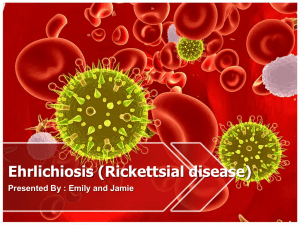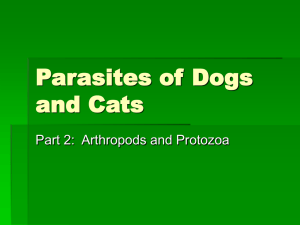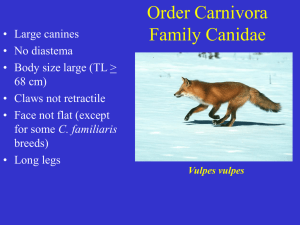Supporting Information S1.—Corrected delta Akaike information
advertisement
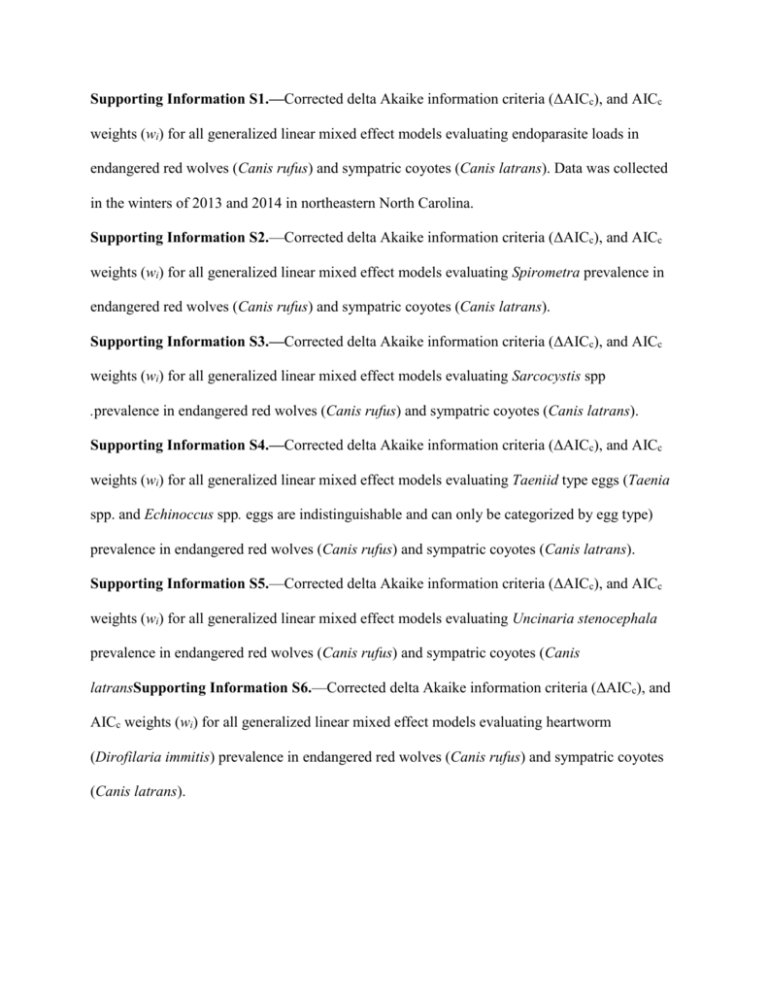
Supporting Information S1.—Corrected delta Akaike information criteria (ΔAICc), and AICc weights (wi) for all generalized linear mixed effect models evaluating endoparasite loads in endangered red wolves (Canis rufus) and sympatric coyotes (Canis latrans). Data was collected in the winters of 2013 and 2014 in northeastern North Carolina. Supporting Information S2.—Corrected delta Akaike information criteria (ΔAICc), and AICc weights (wi) for all generalized linear mixed effect models evaluating Spirometra prevalence in endangered red wolves (Canis rufus) and sympatric coyotes (Canis latrans). Supporting Information S3.—Corrected delta Akaike information criteria (ΔAICc), and AICc weights (wi) for all generalized linear mixed effect models evaluating Sarcocystis spp .prevalence in endangered red wolves (Canis rufus) and sympatric coyotes (Canis latrans). Supporting Information S4.—Corrected delta Akaike information criteria (ΔAICc), and AICc weights (wi) for all generalized linear mixed effect models evaluating Taeniid type eggs (Taenia spp. and Echinoccus spp. eggs are indistinguishable and can only be categorized by egg type) prevalence in endangered red wolves (Canis rufus) and sympatric coyotes (Canis latrans). Supporting Information S5.—Corrected delta Akaike information criteria (ΔAICc), and AICc weights (wi) for all generalized linear mixed effect models evaluating Uncinaria stenocephala prevalence in endangered red wolves (Canis rufus) and sympatric coyotes (Canis latransSupporting Information S6.—Corrected delta Akaike information criteria (ΔAICc), and AICc weights (wi) for all generalized linear mixed effect models evaluating heartworm (Dirofilaria immitis) prevalence in endangered red wolves (Canis rufus) and sympatric coyotes (Canis latrans). Supporting Information S7.—Corrected delta Akaike information criteria (ΔAICc), and AICc weights (wi) for all generalized linear mixed effect models evaluating Ehrlichia spp. prevalence in endangered red wolves (Canis rufus) and sympatric coyotes (Canis latrans). Supporting Information S8.—Corrected delta Akaike information criteria (ΔAICc), and AICc weights (wi) for all cumulative link mixed models evaluating ectoparasites loads in endangered red wolves (Canis rufus) and sympatric coyotes (Canis latrans). Supporting Information S9.—Viral pathogens detected in southeastern wildlife populations based on articles containing the words [“United States” AND south* AND (_disease_ OR _parasit*_ OR _pathogen_)] and keyword searches in the following journals: Journal of Zoo and Wildlife Medicine, Journal of Wildlife Disease, Journal of Veterinary Medicine, American Journal of Veterinary Research, Journal of Parasitology, American Midland Naturalist, and Southeastern Naturalist. Supporting Information S10.—Endoparasites detected in southeastern wildlife populations based on articles containing the words [“United States” AND south* AND (_disease_ OR _parasit*_ OR _pathogen_)] and keyword searches in the following journals: Journal of Zoo and Wildlife Medicine, Journal of Wildlife Disease, Journal of Veterinary Medicine, American Journal of Veterinary Research, Journal of Parasitology, American Midland Naturalist, and Southeastern Naturalist. Supporting Information S11.—Detected disease occurrence in wild North American canids, including bacteria, endoparasites, fungal, and virus infections. Supporting Information S12.—Bacterial pathogens detected in southeastern wildlife populations based on articles containing the words [“United States” AND south* AND (_disease_ OR _parasit*_ OR _pathogen_)] and keyword searches in the following journals: Journal of Zoo and Wildlife Medicine, Journal of Wildlife Disease, Journal of Veterinary Medicine, American Journal of Veterinary Research, Journal of Parasitology, American Midland Naturalist, and Southeastern Naturalist. Supporting Informatino S13.—Published accounts of suspected or documented disease mediated population declines in threatened species.
